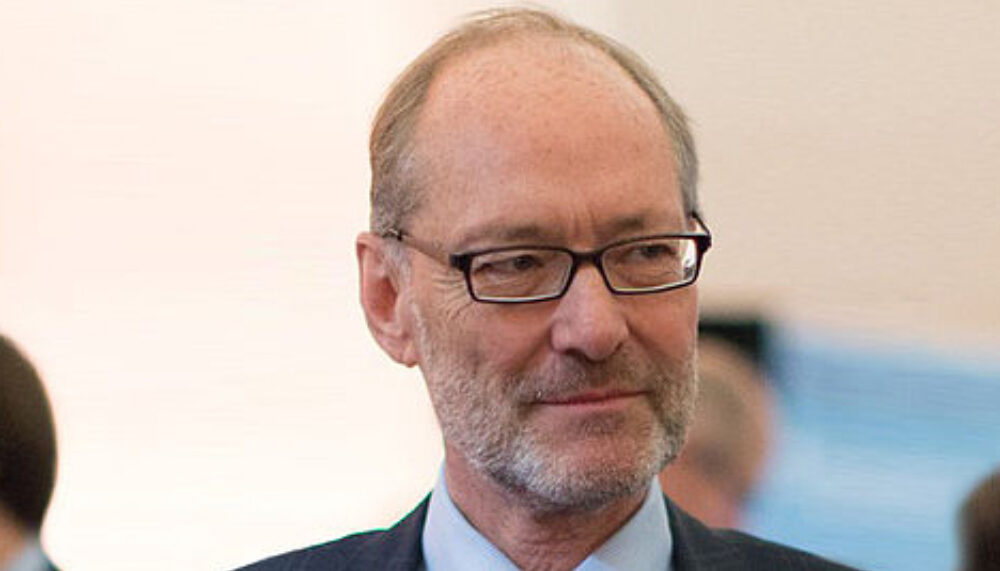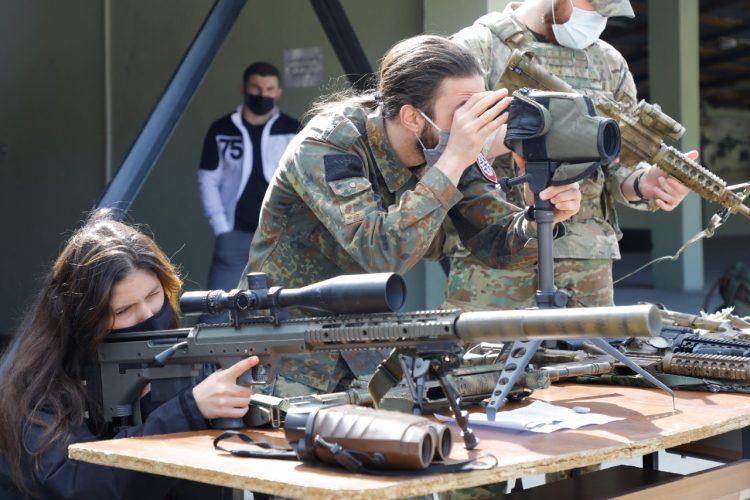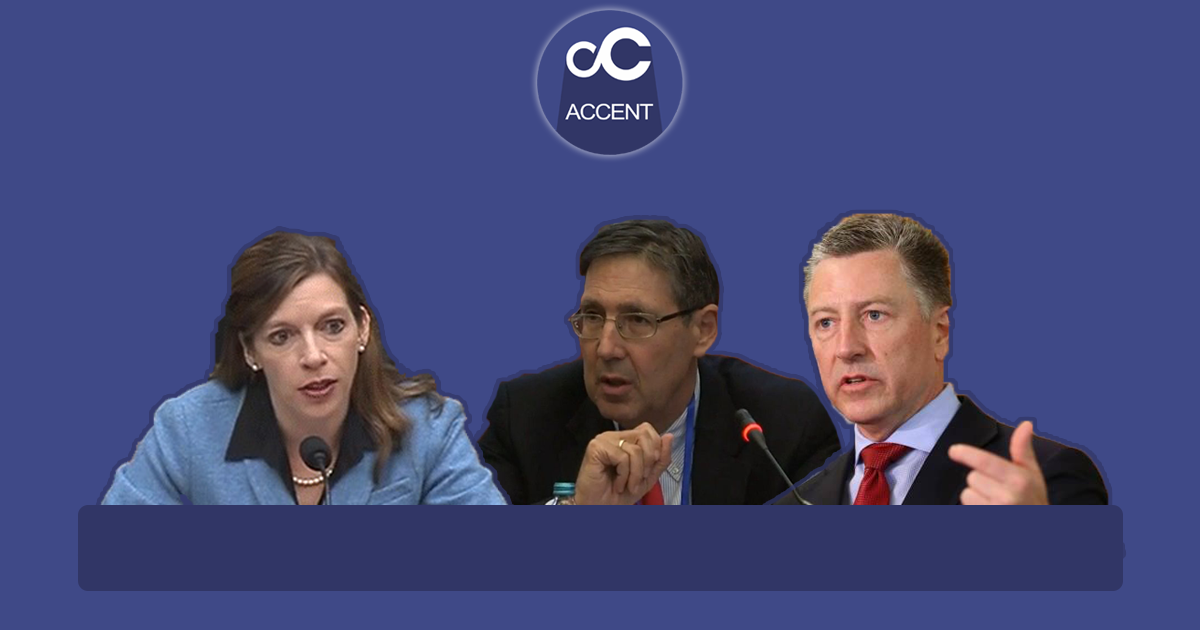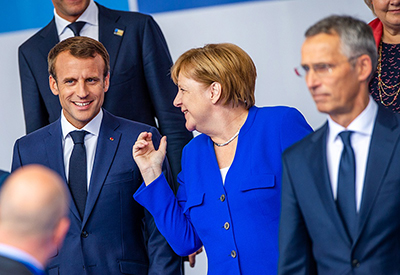
Positions of Some Western European Countries on Georgia's NATO Membership
07/07/2021 10:44:48 Foreign Politics
The North Atlantic Treaty Organization (NATO) held its 31st summit in Brussels on June 14.
There is still no consensus in the Alliance to invite Georgia and Ukraine to NATO. And this happens despite the experience of 2008 and the fact that since then Russia's policy towards its neighbors and the entire civilized world is becoming increasingly aggressive.
The Accent was interested in the positions of Western European countries on Georgia's accession to the Alliance and sent the following question to the embassies of Germany, France, Italy, the Netherlands and the United Kingdom in Georgia:
“We are interested in the position of your country regarding the invitation of Georgia to NATO: are you against it and if so, could you tell us a reason?”.
Here are the comments of the Western embassies in Georgia:
Germany
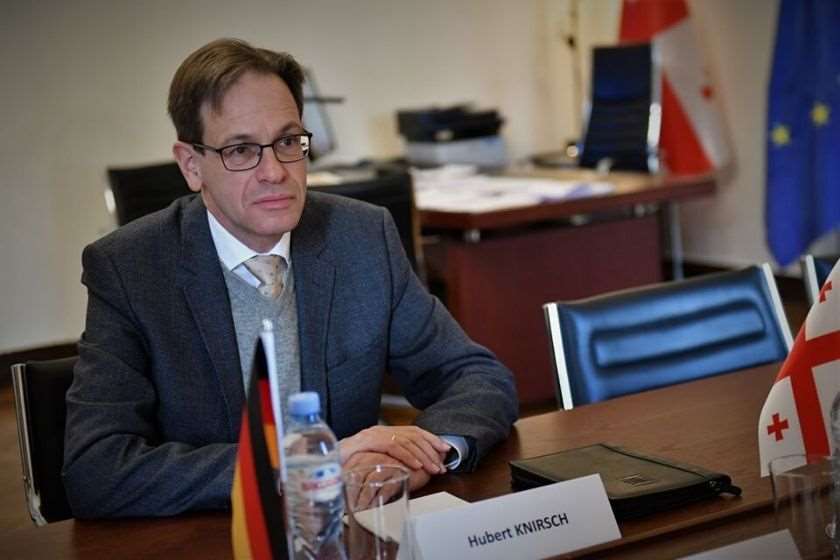
„NATO Summit in Brussels was important for all member states as well as for Georgia, as it strengthened the unity of the Alliance. We must clarify: the decision on NATO membership was not on the agenda. Thus, for all member states, the Bucharest decision remains in force: Georgia and Ukraine will become members of NATO. We are approaching this goal through multilateral cooperation within the framework of the Substantial NATO-Georgia Package (SNGP),” German Ambassador to Georgia Hubert Knirsch told the Accent.
France

“The NATO summit was a very important and successful meeting. It was a powerful and useful reminder of what NATO is and of what it does.
Among the many important statements and decisions that took place during the Summit, it is right that there was a strong reaffirmation of the ambitious partnership between NATO and Georgia.
The important thing now is to implement the many dimensions of this ambitious partnership. This will make Georgia and NATO stronger, and it will effectively bring Europe and Georgia closer together,” French Ambassador to Georgia Diego Colas told the Accent.
The Netherlands

“We highly value the close cooperation between NATO and Georgia as Enhanced Opportunities Partner and highly appreciate Georgia’s substantial contribution to NATO-operations, as is underlined in the NATO Summit Communiqué. Georgia is an important partner to NATO. We are contributing to the refreshed Substantial NATO-Georgia Package (SNGP), as important development in the cooperation between NATO and Georgia. Thus we have for instance provided financial support to the Defence Institution Building School in Georgia. We will continue our support to Georgia’s reform process in other spheres as well,” Ambassador of the kingdom of Netherlands to Georgia, Maaike van Koldam told the Accent.
Italy
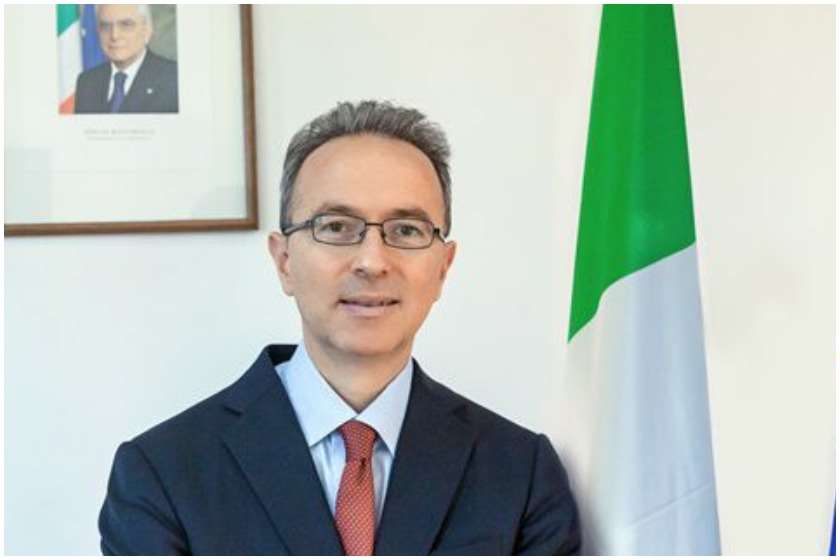
“The Heads of State and Government participating in NATO’s Summit in Brussels on 14 June 2021 reiterated the decision made at the 2008 Bucharest Summit that Georgia will become a member of the Alliance, with the Membership Action Plan (MAP) as an integral part of the process. They reaffirmed all elements of that decision, as well as subsequent decisions, including that each partner will be judged on its own merits. The Alliance stood firm in its support for Georgia’s right to decide its own future and foreign policy course free from outside interference
The Allies have been providing continuous support concerning the Euro-Atlantic integration process undertaken by the country.
Georgia has developed one of the most intense and substantial partnerships with the North Atlantic Alliance. As “Enhanced Opportunity Partner” (EOP), Tbilisi holds frequent political dialogue with the Alliance within the framework of the NATO-Georgia Commission, as well as ambitious practical cooperation, through a number of different tools.
Italy is playing a major role within this framework, through significant commitments – political and financial, through the NATO-Georgia Substantial Package – which included the creation of a Defence Institution Building School (DIB) and contribution to the Joint Training and Evaluation Centre (JTEC).
Further initiatives are in the pipeline right now, including a project aimed at training a battalion of Georgian Military Police, whose implementation will be carried out by Italian Carabinieri, under the auspices and the financing of NATO’s Defence and Capacity Building Trust Fund,” the Ambassador of Italy to Georgia, Enrico Valvo told the Accent.
The United Kingdom
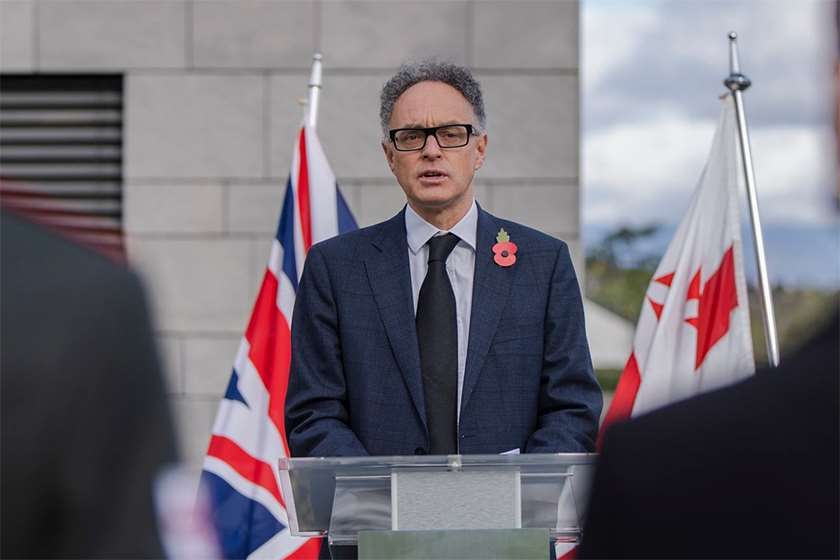
“The UK remains committed to supporting Georgia on its path to join the Euro- Atlantic family. We support Georgia’s reform agenda aimed at building and strengthening democratic institutions, growing its economy, improving its defence and security capabilities, and becoming more resilient to external threats. We have been a vocal supporter of Georgia’s positions in key international fora such as the UN and OSCE for many years.
The NATO Summit took place earlier this week. At that summit NATO again made its support for Georgia’s territorial integrity and sovereignty clear, and repeated its decision made in 2008 that Georgia will become a member of the alliance. The UK, stands by the commitments made in the Summit Communique. NATO also made clear that continued progress on reform is essential if Georgia is to progress towards membership. In this way the wider package of UK support to Georgia’s continued reforms is an integral part of our support to Georgia’s path to NATO membership in line with the aspirations of people of Georgia,” UK Ambassador to Georgia Mark Clayton told the Accent.
Georgia in Brussels Summit Communiqué:
“We reiterate our support for the territorial integrity and sovereignty of Ukraine, Georgia, and the Republic of Moldova within their internationally recognised borders. In accordance with its international commitments, we call on Russia to withdraw the forces it has stationed in all three countries without their consent. […] We further call on Russia to reverse its recognition of the Abkhazia and South Ossetia regions of Georgia as independent states; to implement the EU-mediated 2008 ceasefire agreement; to end its militarisation of these regions and attempts to forcibly separate them from the rest of Georgia through the continued construction of border-like obstacles; and to cease the human rights violations, arbitrary detentions, and harassments of Georgian citizens. We reiterate our firm support to the Geneva International Discussions.
We reiterate the decision made at the 2008 Bucharest Summit that Georgia will become a member of the Alliance with the Membership Action Plan (MAP) as an integral part of the process; we reaffirm all elements of that decision, as well as subsequent decisions, including that each partner will be judged on its own merits. We stand firm in our support for Georgia’s right to decide its own future and foreign policy course free from outside interference. As an Enhanced Opportunities Partner, Georgia is cooperating closely with the Alliance across a wide range of issues. We highly appreciate Georgia’s substantial contributions to NATO operations, which demonstrate its commitment and capability to contribute to Euro-Atlantic security. We welcome the recent political agreement on the Way Ahead for Georgia and encourage its full implementation by all sides. This agreement paves the way for the important reforms which will help Georgia, an aspirant country, progress in its preparations towards membership. We remain committed to making full use of the NATO-Georgia Commission and the Annual National Programme in deepening political dialogue and cooperation. We commend the significant progress on reforms which Georgia has made and must continue to make, and which have helped Georgia strengthen its defence capabilities and interoperability with the Alliance. Georgia’s relationship with the Alliance contains all the practical tools to prepare for eventual membership. We are working closely with Georgia on security in the Black Sea region, in response to Russia’s increasingly destabilising activities, and welcome the steps taken to implement the refreshed Substantial NATO-Georgia Package. We stand ready to enhance our support to Georgia, including in building resilience against hybrid threats, in training and exercises, and in secure communications. We look forward to the next NATO-Georgia exercise in 2022,” Communiqué said.
Former commander of the U.S. Army in Europe, now the Pershing Chair in Strategic Studies at the Center for European Policy Analysis (CEPA), Ben Hodges said that the cooperation between NATO and Georgia in the Black Sea region, in response to Russia’s increasingly destabilising activities, is inadequate.
As he told the Accent, it reflects a lack of a strategy for the greater Black Sea region.
“Neither NATO nor the U.S. has a strategy for the region. Therefore, we don’t have adequate policy for Georgia or Ukraine or Moldova or, frankly, for Turkey. We are of course very unhappy with what the Kremlin is doing in Georgia and the rest of the Black Sea region. But Russia will stop what it is doing only when it is stopped,” Hodges said.
According to the NATO Brussels summit communiqué, “Russia’s aggressive actions constitute a threat to Euro-Atlantic security.“
When asked, “when Russia is considered such a threat, how adequate are NATO's steps to deter Russia?”, Hodges said: “This of course remains to be seen.”
“NATO has done a good job of improving its capabilities within NATO territory. However, we as NATO and also as the U.S. have not done a good, consistent job of communicating to the Kremlin that its aggression in Ukraine, Georgia and elsewhere are unacceptable. So, until we demonstrate to the Kremlin that we are really serious and that the Russian Federation leadership will face real consequences, then I expect them to continue their behavior,” he said.
As for the issue of the invitation of Georgia to NATO, Hodges said that “Georgia should already be in the Alliance.”
“This current situation is a reflection of the fear of some NATO countries of a Kremlin reaction - a reluctance to “provoke” Russia. I think this is the wrong mindset. The Kremlin does not need provocation. It does what it wants unless it is stopped or if it sees that we are serious. We need a Black Sea strategy, which means we need a Russian strategy. Then we can have meaningful policies for Georgia.” he said
“I think the USA must strengthen/affirm its bilateral relationships with Georgia and with Ukraine before we can convince Germany and France that Georgia should be in NATO,” he added.







